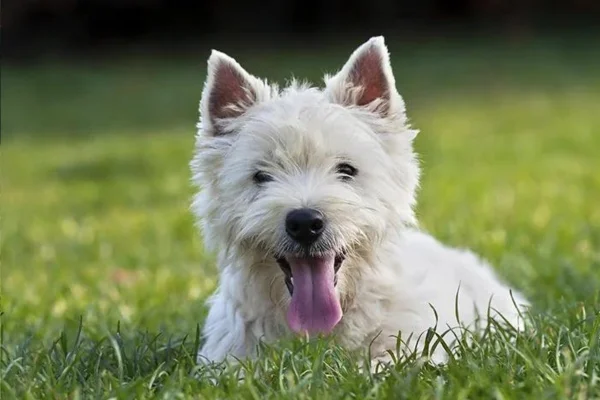Why Choose a Small Dog Breed: Benefits, Care and Purposes
Opting for a small dog breed can be the ideal choice for those looking for a faithful, practical companion who can easily adapt to modern lifestyles. These dogs are famous for their versatility, making them perfect for both apartment dwellers and families who want a loving pet that fits into any environment. In addition, small breeds tend to require less space and exert a cozy presence, while still being active and affectionate.
The benefits of choosing a small dog breed go beyond practicality. These breeds tend to be more economical in terms of food and veterinary care, as well as being easier to transport, whether for a visit to the park or on a trip. Another important point is longevity; in general, small dogs live longer, offering years of love and companionship to their guardian.
For many people, adopting a small dog breed is also a question of safety and control. Because they are smaller, these dogs are easier to train and handle, which can be a great relief for owners looking for peace of mind and harmonious coexistence. Let's now explore in detail the main aspects and advantages of having a small dog, guiding you on how to make the best choice for your home.
Contents
The Best Small Dog Breeds for Different Lifestyles
Choosing the best small dog breed for your home depends on several factors, including your lifestyle, the space available and your personal preferences. Each breed has unique characteristics that may suit different types of owners.
- Pug: Known for their docile and affectionate temperament, the Pug is an excellent choice for those looking for a companion dog. They love to be close to their owners and are known for being great with children. Despite being a little stubborn, Pugs are very loyal and love to please.
- Shih TzuIf you're looking for a dog that's quiet and does well indoors, the Shih Tzu could be the perfect choice. They are independent, but love a lap. Their long, beautiful coat requires regular maintenance, but this grooming routine can turn into a moment of connection between the owner and the animal.
- ChihuahuaSmall but full of personality, the Chihuahua is ideal for those who want a dog that is compact and easy to transport. They are extremely loyal and protective of their owners, making them a great choice for those looking for a guard dog in a compact format.
- Yorkshire TerrierElegant and full of energy, the Yorkshire Terrier is perfect for those who want an active and playful dog. They are great for owners who like frequent walks and playtime. Their silky coat requires a bit of grooming, but in return, the Yorkshire offers a lot of affection and companionship.

Specific Care for Small Breeds
Although small dogs have many advantages, they also have specific needs that must be taken into account. One of the most important points is their physical fragility. Because they are smaller, these dogs can be more susceptible to injury. It is essential to ensure that they are handled with care, especially in homes with small children.
In addition, many small dogs are predisposed to dental problems such as tartar formation. Oral hygiene should be a priority, with regular tooth brushing and visits to the vet for professional cleanings when necessary. Another aspect to consider is the tendency to be overweight. Due to their size, it is easy to overfeed these dogs, which can lead to health problems such as diabetes and heart disease. Monitoring the diet and ensuring adequate exercise are fundamental measures to keep your pet's health up to date.
Purposes and Lifestyle Adaptations
The choice of a small dog breed you should also consider the purpose for which you want a pet. If you are looking for a companion dog who is affectionate and likes to be around all the time, breeds such as the Pug and the Shih Tzu may be ideal. On the other hand, if you are looking for a dog that is more active and enjoys playing, the Yorkshire Terrier or Chihuahua may be better choices.
Also, consider how the dog will adapt to your lifestyle. If you live in a small apartment and spend a lot of time away from home, a breed that is more independent and doesn't require so much constant attention may be the best option. Breeds such as the Shih Tzu or Chihuahua are known for doing well in small environments and for being more independent.
Climate and Environmental Adaptation
When choosing a small dog breed, it is essential to consider how the dog will adapt to the climate in your area. Breeds such as the Chihuahua, originally from warm climates, can get very cold in lower temperatures and therefore may need extra clothes and blankets. On the other hand, breeds like the Pomeranian, with their dense coats, are more prepared for cold climates, but can suffer in very hot places. Knowing the specific needs of each breed in relation to the climate helps ensure your pet's comfort and health.
Sociability and Living with Other Animals
Sociability varies greatly between small dog breeds. Pugs and Shih Tzus, for example, are generally friendly and get on well with other animals and children, making them great companions for families. The Chihuahua and Yorkshire Terrier, on the other hand, can be more territorial and suspicious, especially with strangers or other animals. If you already have other pets at home, it's important to understand how to introduce a new puppy gradually and safely, to ensure harmonious coexistence.
Life Expectancy and Common Health Problems
Small dogs tend to live long lives, with an average expectancy of 12 to 16 years or more. However, they can also be prone to certain health problems. Patellar dislocation, dental problems and breathing difficulties, especially in breeds like the French Bulldog and the Pug, are common. Maintaining a routine of veterinary care, offering a balanced diet and ensuring adequate exercise are key to prolonging your dog's healthy life.
Training and Intelligence
Small dog breeds such as the Toy Poodle are known for their intelligence and ease of training, learning commands quickly. However, some breeds, such as the Shih Tzu, can be more stubborn and require patience and consistency during training. Using positive reinforcement methods, with treats and praise, is an effective way of educating your puppy, creating a relationship of trust and obedience.
Maintenance costs
Although the cost of keeping a small dog may be lower in terms of food and space, some breeds may require additional expenses. Breeds such as the Shih Tzu and Pomeranian require frequent grooming, which can make maintenance more expensive. In addition, breeds prone to specific health problems may require more frequent veterinary care. Planning financially before adopting a puppy is essential to ensure that you can offer it all the care it needs.

Hypoallergenic breeds
For allergy sufferers, choosing a hypoallergenic breed can be the ideal solution. Breeds such as the Bichon Frisé, Maltese and Schnauzer shed less hair and produce fewer allergens, which reduces the chances of triggering allergic reactions. This makes them excellent companions for people who love dogs but have allergic sensitivities.
Testimonials and Success Stories
Many owners report how the presence of a small dog has transformed their lives. Whether it's helping to overcome moments of loneliness or bringing joy to a family, these dogs win the hearts of their owners with their endearing personalities. Success stories, such as that of a Pomeranian who became a child's best friend, or a Chihuahua who brought companionship to an elderly man, show the positive impact these pets have on people's lives.
Considerations for traveling with an Rmuzzle Small Dog
Traveling with a small dog is much more practical than with a larger dog. They can be easily accommodated in smaller crates and are often allowed in the cabin of airplanes, unlike large dogs that have to travel in the cargo compartment. To ensure that your pet feels comfortable when traveling, get them used to the crate from an early age and provide a safe and familiar environment, reducing their anxiety during the journey.
Conclusion
Choosing a small dog breed can bring countless benefits for both the pet and the owner. These dogs are versatile, adaptable and offer affectionate companionship without requiring large spaces or intense routines. Whichever you choose, the important thing is to ensure that the dog receives the care and love it deserves, providing a long and happy life for both of you. By considering all the aspects covered in this article, you'll be better prepared to make an informed decision and find the perfect companion that fits perfectly into your home and lifestyle.
Thanks for stopping by, check out our other work too








